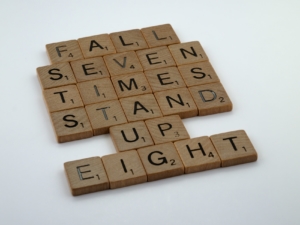General Business Strategy
The key to business survival is Business Resilience
As a business owner, there’s almost too much that goes into building a resilient business.
After all, it’s not just about having a good business idea anymore; you’ve got to understand how to deliver that idea at scale, get it known in multiple markets both online and off, serve your customers immaculately, build a great team and manage finances like a tap dancer.
But more than that, you need to survive the inevitable setbacks, mistakes and even disasters that will come your way. Because sh*t happens. You need to roll with the punches.
Chances are, when you think of “business resilience,” you’re not thinking of your marketing.
But you should.
Before we get into the reasons why—let’s start with the basics.
What is business resilience?
To put it simply, business resilience is the ability to rapidly adapt and respond to business disruptions, whether that’s a new market contender, a worldwide pandemic, or the surprisingly difficult problem of growth.
Business resilience feeds business success. It’s the key behind any sustainable company and is the reason why your business is never the same when you started as it is a decade later. In short: The most resilient businesses put themselves in a position to make changes when they need to.
The truth is 40% of businesses don’t re-open after a major disruption. Of those that do, another 25% fail within the first year back.
Because business resilience isn’t just about having a plan from the get-go; true resilience is the ability to pick yourself back up after an unexpected knockdown.
Crucially, knowing you can do this gives you the confidence to take necessary calculated risks.
And who better to ask about risk-taking than a creative marketer?

Consistent marketing creates resilience
Take a brief moment to consider your current competition—not just the ones you’re actively trying to win clients from, but the companies you look up to and those that are coming up on you quickly. Who comes to mind? Why them?
We’re all well aware that marketing is what gets you known in the marketplace, but what we all sometimes forget is that it’s one of the strongest parts of your business to fall back on when things get tough. This is the essence of resiliency.
The formula is simple: When your marketing’s consistently good, so is your business’ success.
“Consistency” is thrown around a lot by marketers, though. Here’s what consistency in marketing—and subsequently, in your business—really means.
Building a resilient brand
Many business owners think marketing is an action; in other words, they believe that marketing begins when you decide it does.
The truth is quite the opposite: Your marketing is going on 24/7, whether you’re in the drivers’ seat or not. Because marketing doesn’t just begin when you turn on an ad or launch your website; marketing begins the moment you decide to go into business. Marketing starts with your brand.
A strong brand lives in your market’s heads whether you’re active or not, through the good times and the bad.
A great brand is a huge and valuable asset. As of September 2021, Coca-Cola has a market cap of $233.35 Billion. Its brand is estimated to be worth $87 billion.
That’s right, if all its factories burned down, all its product evaporated and all its people disappeared, it would still retain about a third of its value – for what it’s created inside peoples’ heads over the past century and indestructible asset!
So you can see, building a resilient brand is a huge part of building a resilient business. Resilient brands boil down to three major things:
- They’re relevant. The ability to adapt to current times—whether that’s a worldwide pandemic or a new TikTok trend—is an obvious sign of resiliency. Beyond that, though, resilient brands know when to connect with their customers wherever they’re at.
- They’re human. More than anything, they know how to connect with their audience, too. How they speak, act, look, behave and display their values all boil down to building human connection. And consumers want more personalized experiences with the brands they interact with—and will even go so far as to boycott a brand they disagree with on a values level.
- They’re authentic. Similarly to being human, a resilient brand has a voice of its own. Yes, it knows how to connect with its’ audiences, but it also knows how to admit mistakes, grow, and not be something they’re not.
Adapt your marketing often
Marketing is one of the fastest evolving industries in the world; it’s why marketing is one of the most competitive fields today—because marketing encapsulates many smaller industries including psychology, big data, technology, and design.
The most resilient businesses are the ones that can change paths on a dime; they don’t just weather storms, they grow alongside them and actually draw strength from them.
Particularly for smaller businesses, agility is your asset. Consider yourself better equipped for resilience than anyone else.
Trust data first
As much as your customers may want an emotional connection to your brand, your marketing can’t be driven by human intuition alone. Data continues to spearhead decision-making for businesses of all sizes—and we have more of it to use than ever before.
Knowing – really knowing – what works is your best asset in the fight for business resilience. Begin collecting data wherever you can now, even if you’re unsure of how you’ll leverage it in the future.
And make ‘test-measure-learn-optimise-repeat’ your mantra.

In the end, it’s all about strategy
When you initially begin building a business, you start with a strategy. And when you begin to consider your next marketing planning plan, you should also start with a strategy. Business resilience planning is no different.
Business resilience strategies aren’t just business plans. Exceptional business resilience strategies are highly focused, agile and adaptable. They focus not only on what to do in case of an emergency or disruption, but who will do it and when.
Just like your marketing team is built of a leader and team members to implement, your business resiliency strategy should identify decision-makers and action-takers.
At the end of the day, your business is no more resilient than the precautions you put in place to make it that way. Remember to revisit your strategy often, just as you should your marketing strategy.
Key takeaways
Business resilience is a multi-faceted concept that requires the right culture, creativity, discipline and strategic foresightedness. It begins before you even launch your business to the public and grows in importance as your business grows —just like marketing does.
From a marketing point of view, investing in a brand is investing in a more secure future and a great asset. Committing to building a strong brand greatly improves your chances of building a strong business, too.
If you’re unsure what steps you need to take now in order to build a stronger marketing and brand strategy, start by taking this short quiz. Or if you know you’re in need of more help, feel free to reach out to us to talk about strengthening your marketing.
Photo credit: Unsplash





